Category: Hendingar
Cryptanalysis – a never-ending story
Cryptographic primitives, like encryption schemes and hash functions are the core of most security applications.But the trust that users place in these algorithms has been repeatedly violated.There are many examples of attacks which exploit weaknesses of the underlying cryptographic primitives. So when can we trust cryptography?

Anne Canteaut
This question will addressed in a popular presentation by newly appointed honorary doctor at UiB, Prof. Anne Canteaut, whose main position is as research director at the Inria Paris Research Center (Paris Department of the National Institute for Research in Computer Science and Automation).
Coordinates: VilVite Auditorium, on Wednesday Oct 16, @10.15–11.15
Course in Collegial Teaching and Learning
Collegial Teaching and Learning – in STEM Education is an elective course in teaching and learning in higher education given by bioCEED. The course consists of two separate units corresponding to two plus one (= three) weeks of full-time work and is given in Norwegian/Swedish. This course introduces you to current concepts of teaching and learning in higher education in order to develop your ability to improve student learning. The course is focused on discussing pedagogical topics specifically related to teaching and learning in STEM (Science, Technology, Engineering and Mathematics) and is designed for teaching staff and administrators within these subjects. The course requires no previous higher education teacher training and can be offered to both experienced and more novice personnel.
The main component of the course is the group project, addressing a teaching issue of relevance to the participants’ own teaching and learning situation. The project work corresponds to 40-50 hours of work per person and is reported orally and in writing. In addition the other course participants will give adequate feedback on the project work. On completion of the course, you will receive a diploma that states the content and extent of the course (5 ECTS). The main course director, Roy Andersen, who most of you got to meet at the HCE day in June, is a computer scientist and ICT didactics working at Lund Univ. Registration deadline: 15th October. Registration is via this link.
Open research data breakfast meeting
 Most major research funders require projects to archive and make available research data. Many publishers also require authors to make available to others, the data underlying their publications. The University Library invites researchers and others to a research data breakfast meeting on Wednesday 23rd of October at Seminarroom 1, Realfagbygget, at 8.30 am. For details, please consult this page.
Most major research funders require projects to archive and make available research data. Many publishers also require authors to make available to others, the data underlying their publications. The University Library invites researchers and others to a research data breakfast meeting on Wednesday 23rd of October at Seminarroom 1, Realfagbygget, at 8.30 am. For details, please consult this page.
Calendar event and sign up: https://www.uib.no/en/ub/129704/research-data-breakfast-meeting
Guest lecture on Material Demand for Energy – Friday Sept 20 @12.15
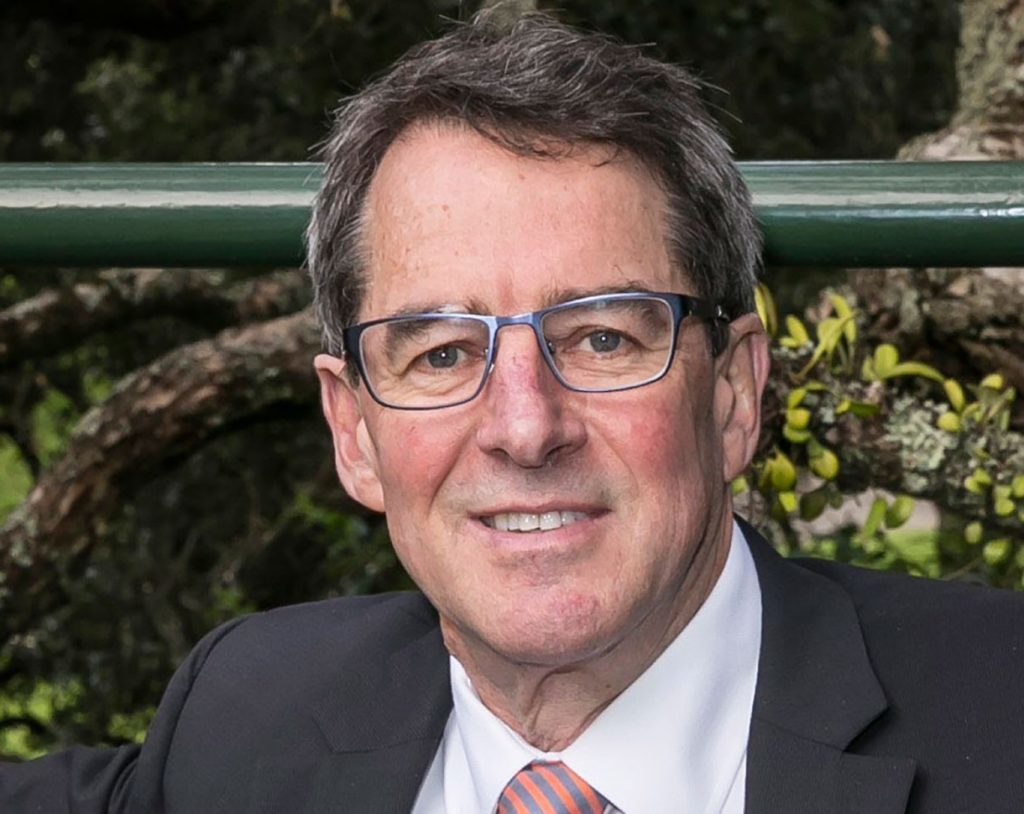 In addition to several high-profile rôles including deputy vice chancellor for research and science adviser to the NZ government, Dr. Metson is a PI at MacDiarmid Institute for Advanced Materials and Nanotechnology. His field of expertise is surface chemistry and material science, and he holds a particular interest in the processing and behavior of aluminium oxide. His wider research interests include:
In addition to several high-profile rôles including deputy vice chancellor for research and science adviser to the NZ government, Dr. Metson is a PI at MacDiarmid Institute for Advanced Materials and Nanotechnology. His field of expertise is surface chemistry and material science, and he holds a particular interest in the processing and behavior of aluminium oxide. His wider research interests include:- Metal oxides, hydroxides and nitrides in catalysis, semiconductor materials, absorbents and refractories
- Synchrotron radiation and applications in surface and materials science.
- Alumina microstructure and the impacts of alumina properties in aluminium reduction technology.
Nano symposium – Kavli laureates and local talents
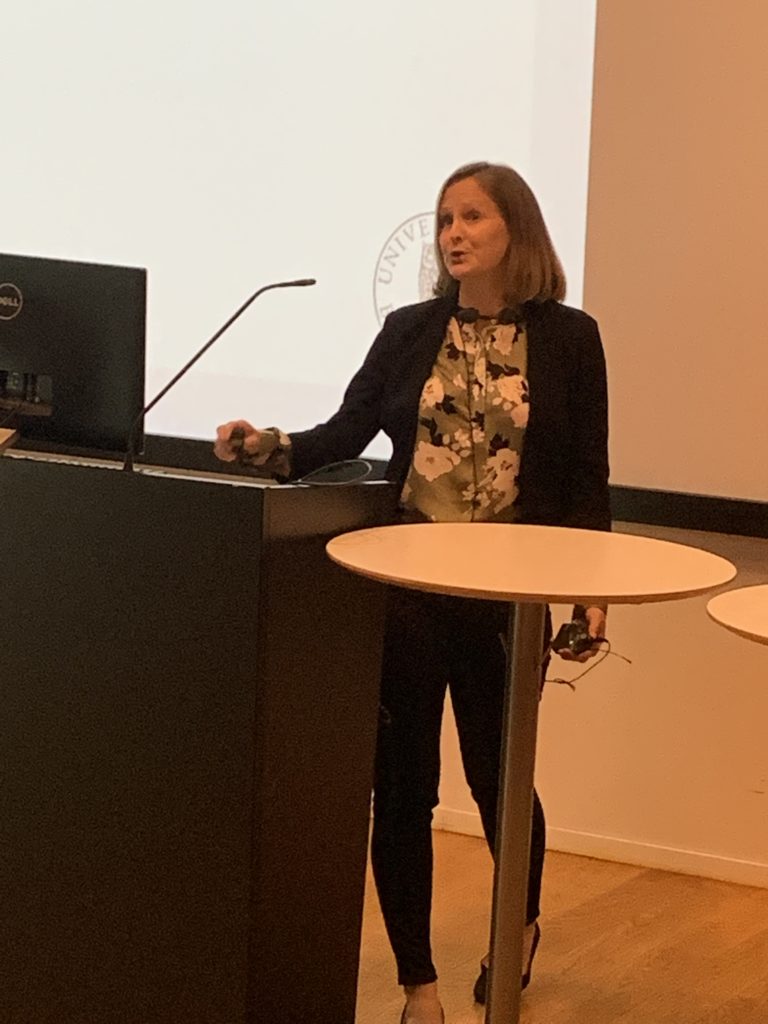
The nano symposium was as every bit as exciting and stimulating as the program promised. Between the opening lecture by professor Thomas Ebbesen on light–matter interaction and the importance of vacuum (!) and the closing lecture by professor Virginijus Šikšnys on the invention and mechanism of CRISPR-Cas9 for DNA editing, four up-and-coming scientists from UiB presented research and plans for research, among them Mali Husby Rosnes at our department. 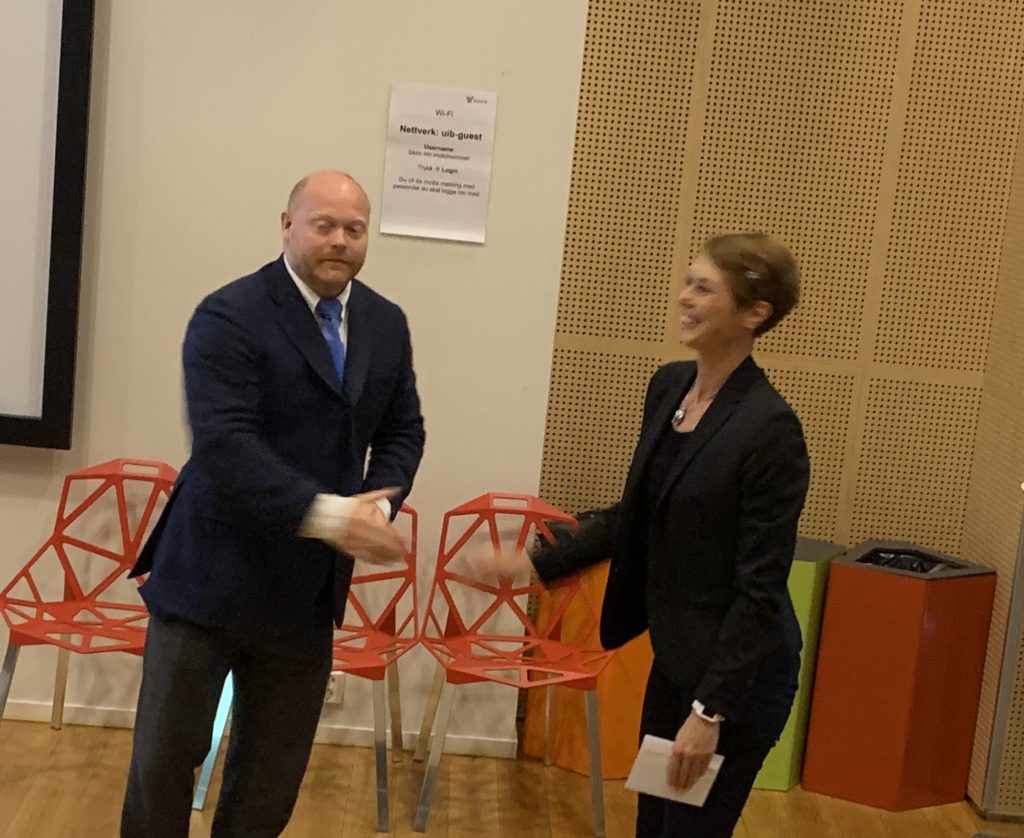
Toward the end of the nano symposium, Hege Ommedal received well earned praise for her excellent coordination of the whole event.
For those missing out on the symposium, there is a second chance to enjoy professor Ebbesen’s highly engaging exposition of his science in the Horizon lecture today, see details at the top of the Kjemi-Nytt entry page.
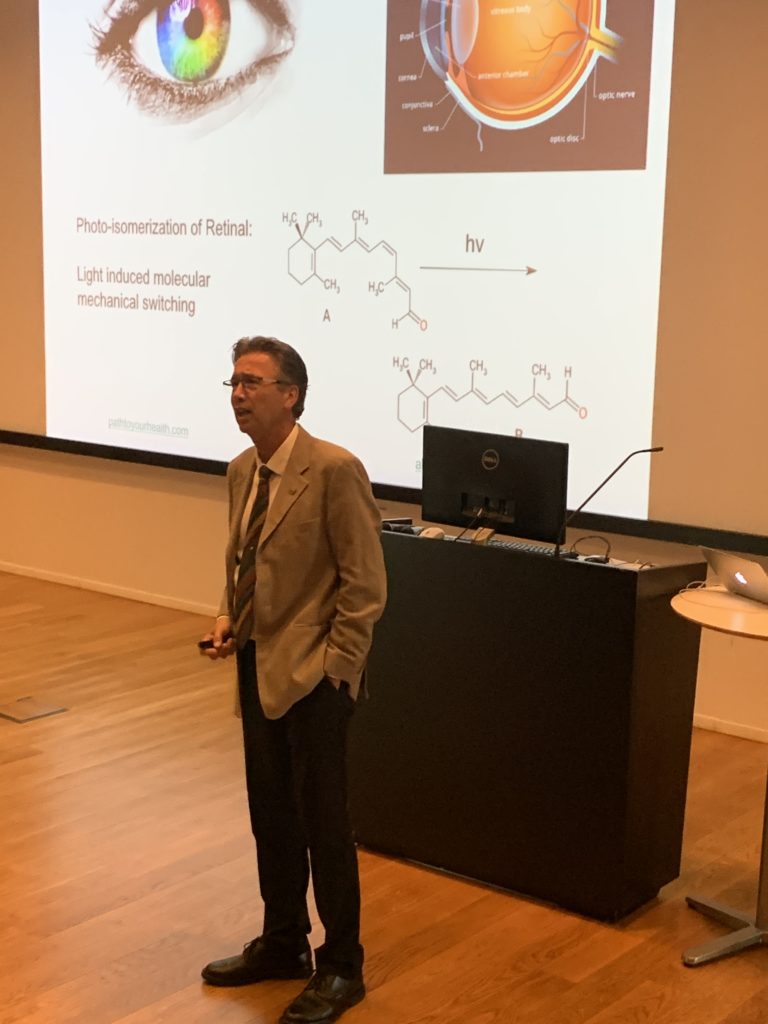 In addition, the Kavli symposium Passion for science has also spurred the opening of a new exhibition at the University Museum that addresses the themes of the Kavli Prize: «On the smallest, the biggest and the most complicated» – learn about the University of Bergen’s research in nanoscience, astrophysics, and neuroscience. Enjoy!
In addition, the Kavli symposium Passion for science has also spurred the opening of a new exhibition at the University Museum that addresses the themes of the Kavli Prize: «On the smallest, the biggest and the most complicated» – learn about the University of Bergen’s research in nanoscience, astrophysics, and neuroscience. Enjoy!
The Rectorate engaged in and at Chemistry
Thursday last week, rector Dag Rune Olsen and his close co-workers in the Rectorate visited the MN Faculty and each and one of its seven departments, chemistry included. At our department we invited the dignitaries to spend the allotted 30 minutes in one of our laboratories, to take part in our enthusiasm for chemistry and to gain some first-hand experience with our subject. This was a very nice opportunity to give some examples of what we as a department and chemistry as a discipline contribute with in the larger, societal context. We can always use a helping hand from Rector!
next ISOM: ..and the winner is… Bergen!
At the recent International Symposium on Olefin Metathesis and Related Chemistry in Barcelona (ISOM23), the Conference Board elected University of Bergen to organize the next symposium in this series. Vidar R. Jensen and Deryn E. Fogg will co-chair the event, which will take place during the first week of July, 2021. This is a nice and timely recognition of the contributions from the Bergen group to olefin metathesis!
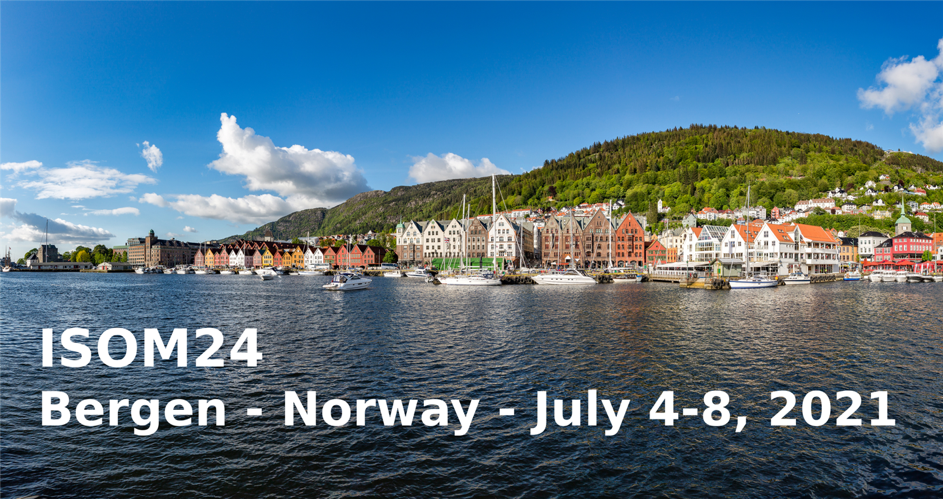
In addition to placing Bergen even more solidly on the “map of olefin metathesis”, the conference will offer a unique opportunity to showcase the Department of Chemistry, Norwegian homogeneous catalysis, Bergen as a conference city, and, of course, Bergen and the West coast of Norway as a superb tourist destination.
Jonas makes it into the top three
At the recent International Symposium on Olefin Metathesis and Related Chemistry, the #1 forum for exchange of the latest scientific results on olefin metathesis, Department of Chemistry contributed no less than two plenary lectures (Vidar R. Jensen and Deryn E. Fogg) and three posters (presented by Marco Foscato, Immanuel Reim, and Jonas Brattebø Ekeli) to the program in sunny Barcelona.

Poster-prize winner Jonas Brattebø Ekeli (number two from right) accompanied by the Jury Chair, Christophe Coperét (number two from left), Odile Eisenstein (right) and the Conference Chair, Xavier Solans-Monfort.
Moreover, in a fierce competition involving a total of 56 posters, Jonas was one of three poster presenters to be awarded the first price: 150 Euros donated by ACS Catalysis. Jonas’ competitors were almost all his seniors (PhD students and postdocs), which makes his achievement all the more impressive. Congratulations! He presented the poster Z-Selective Ru-Indenylidene Olefin Metathesis Catalysts with remarkable structural features, with co-authors Wietse Smit, Bartosz Woźniak, Giovanni Occhipinti, Karl W. Törnroos, and Vidar R. Jensen.
Launching DENOPTIM – the only general-purpose de novo design software for molecules
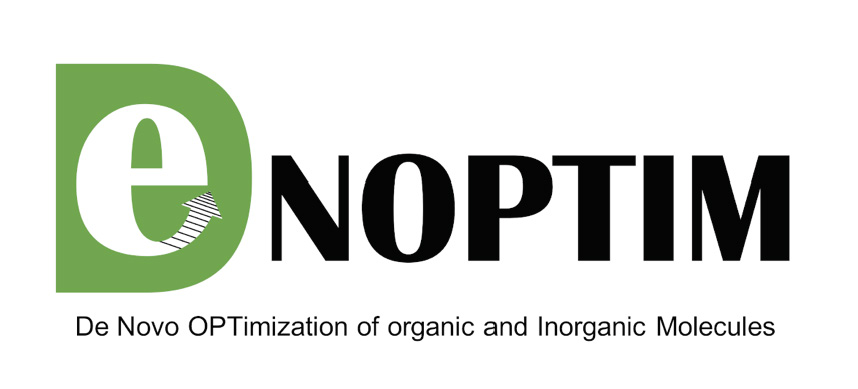 Pursuing a research vision for close-to a decade, Vidar Jensen and co-authors Marco Foscato and Vishwesh Venkatraman were happy to release the DENOPTIM software into the Open Source realm for everybody to use and to extend.
Pursuing a research vision for close-to a decade, Vidar Jensen and co-authors Marco Foscato and Vishwesh Venkatraman were happy to release the DENOPTIM software into the Open Source realm for everybody to use and to extend.
DENOPTIM is the only available general-purpose de novo design software for molecules. It may be used to design all kinds of functional molecules, ranging from pharmaceuticals to organometallic catalysts. It may thus be used, and make an impact, across chemistry. The usage of DENOPTIM is also likely to be promoted by the fact that it is freely available as Open Source from the GitHub project. The authors have documented some of the key methods implemented in DENOPTIM in the scientific literature already. (1, 2, 3).
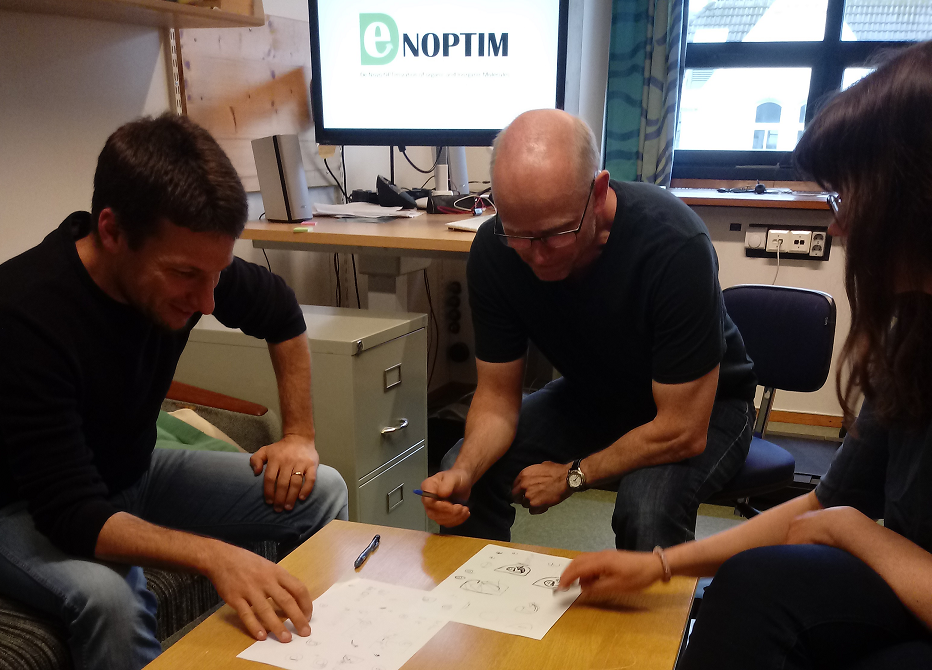
photo: Egil
In addition to providing the world with a useful tool, the launch is also about positioning the research group on the international arena. From this perspective, a fitting and catching logo is of considerable value, and Inger Johanne pitched in with creative twists! All involved parties are congratulated!
